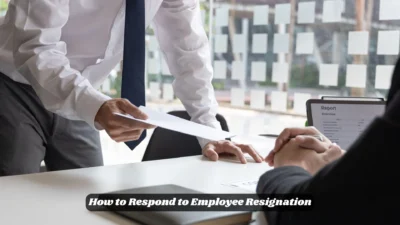If you’ve been wondering how long do merchants have to respond to a dispute, chances are you’re either a customer waiting for answers or a business owner navigating a chargeback or complaint.
You might be tired of repeating the same phrase, looking for a clearer or more professional way to communicate the same idea.
This article will solve that problem. Right here, you’ll find many ways to express how long merchants have to respond to a dispute.
Whether you’re writing an email, sending a customer service message, or chatting casually, there’s a perfect version for your needs.
Every situation is different. Legal matters call for formal phrases. Texts need friendly words. Business emails demand a more polished tone.
That’s why this guide breaks it all down into four easy parts: formal, informal, idiomatic, and professional ways to say the phrase.
Sorry Generator
Formal Ways to Say How Long Do Merchants Have to Respond to a Dispute
When you’re writing in a legal or official setting, formal alternatives help you sound clear and respectful. Here are over 30 options:
- What is the allotted timeframe for merchant response to a dispute
- Within what period must a merchant address a dispute
- What is the statutory deadline for merchant reply
- How many days are permitted for merchant acknowledgment
- What is the official response window for merchants
- What is the designated time merchants have to respond
- What timeframe applies to merchant dispute replies
- How soon must a merchant formally reply
- What is the standard processing period for merchant disputes
- What period is granted to a merchant for a response
- How much time do regulations allow for merchant response
- What is the legal timeframe for handling disputes
- What duration is available for merchant response under policy
- How quickly must merchants resolve a filed dispute
- What is the regulatory window for merchant communication
- What is the compliance period for dispute response
- What timeline governs merchant action on disputes
- What deadline applies to merchants in dispute matters
- What is the grace period allowed for merchant feedback
- How many days can a merchant take to reply
- What is the expected period for merchant engagement
- How long is a merchant granted to handle a dispute
- What is the formal limit for response time
- What is the permitted schedule for merchant replies
- What duration is defined in dispute policies
- How long is acceptable for merchant attention
- What’s the policy-based response interval
- What response period aligns with merchant obligations
- How much time does protocol allow for merchant replies
- How long is the merchant given under standard dispute procedures
- What’s the stated timeframe for merchant compliance
Informal Ways to Say How Long Do Merchants Have to Respond to a Dispute
For texting, social media, or friendly chats, you’ll want simple and casual wording. Here are 30+ options:
- How long till the store gets back to me
- When do I hear back from them
- How much time do they have to answer
- When should I expect their reply
- How soon will they respond
- How long can they take
- When will they get back to me
- How long before they have to answer
- When are they supposed to respond
- What’s the wait time for their reply
- How long can the shop take to respond
- Do they have a deadline
- When do they need to reply by
- How much time are they allowed
- When can I expect to hear from them
- How long will it take them
- When do they usually answer
- Is there a time limit
- How fast do they have to reply
- How long can they leave it
- Are they running out of time
- When’s their last chance to answer
- How long does the business have
- When are they due to answer
- How late can they respond
- What’s the usual turnaround
- When is their answer due
- How long is normal for them to respond
- Are they still within time
- Do they still have time left
- When should I expect anything from them
Idiomatic Ways to Say How Long Do Merchants Have to Respond to a Dispute
Sometimes, adding flair to your language helps make your message more engaging. These idiomatic expressions can add variety:
- What’s their window of opportunity to reply
- When do they need to step up
- How long can they sit on this
- What’s their time to make a move
- When will the ball be in their court
- How long till they show their hand
- What’s the deadline before the clock runs out
- How much time is left on the clock
- When are they expected to rise to the occasion
- How long till they break the silence
- What’s their moment to chime in
- When should they clear the air
- When does their grace period run out
- When must they put their cards on the table
- How long do they have to make it right
- When do they have to face the music
- When do they need to take the reins
- When are they expected to take action
- How much time do they have before the bell rings
- What’s their cue to answer
- When’s their turn to speak
- When do they come out of the shadows
- How long do they have to make their case
- When are they due for a comeback
- How long before they run out of rope
- How long till they pick up the thread
- What’s their shot at redemption
- When must they step into the ring
- When do they need to weigh in
- How long till they return serve
- When does their time start ticking
Professional Ways to Say How Long Do Merchants Have to Respond to a Dispute
These polished phrases are ideal for workplace communication, emails, and meetings with clients:
- What is the merchant’s response timeline under policy
- When can a reply from the merchant be expected
- How long does the merchant have per company procedure
- What’s the standard merchant response window
- When are merchants required to follow up
- What’s the timeframe for merchant resolution
- When is the expected feedback from the merchant
- What is the merchant’s reply due date
- When does the merchant need to respond
- How long before the merchant is expected to take action
- What response duration does the merchant have
- What is the internal SLA for merchant disputes
- How many business days are allowed for a reply
- When should we anticipate a response from the merchant
- What’s the timeline for their dispute review
- What’s the allowed time frame for their reply
- When are merchants obligated to respond
- What’s the expected time commitment for merchant responses
- How much time is allocated for merchant feedback
- What’s their commitment window
- When is merchant engagement scheduled
- What’s the expected deadline from the merchant’s side
- When will the merchant communicate a resolution
- What’s the timeline dictated by dispute policies
- How many calendar days are assigned to merchant response
- What does protocol state about merchant reply time
- How long is standard for resolving merchant issues
- When is the merchant’s next action due
- What’s the merchant’s timeframe for dispute communication
- What’s the deadline for a merchant’s official reply
- What’s the business response deadline for dispute claims
Conclusion
Knowing how to ask how long do merchants have to respond to a dispute can help you get clear answers and show professionalism in your communication. Each situation—formal, informal, idiomatic, or professional—calls for a different style. By practicing these phrases, you can speak or write with more clarity and confidence. Try using one new phrase each day, and soon you’ll master the art of saying things the right way.

Oliver Hale is a passionate American author known for his insightful storytelling and captivating writing style. With a deep love for literature and a unique ability to explore the complexities of human emotions, Oliver has crafted stories that resonate with readers from all walks of life. His work often reflects themes of personal growth, resilience, and the intricate beauty of everyday experiences.
Born and raised in the United States, Oliver developed a fascination for writing at an early age. Over the years, he has honed his craft, combining relatable characters with powerful narratives that leave a lasting impact. When he’s not writing, Oliver enjoys reading classic novels, exploring nature, and mentoring young writers.
Some of his notable works include “The Silent Echoes,” “Beneath the Maple Sky,” and “Shadows of Yesterday.” Each book offers a unique journey that highlights his talent for weaving emotion and meaning into every page.




